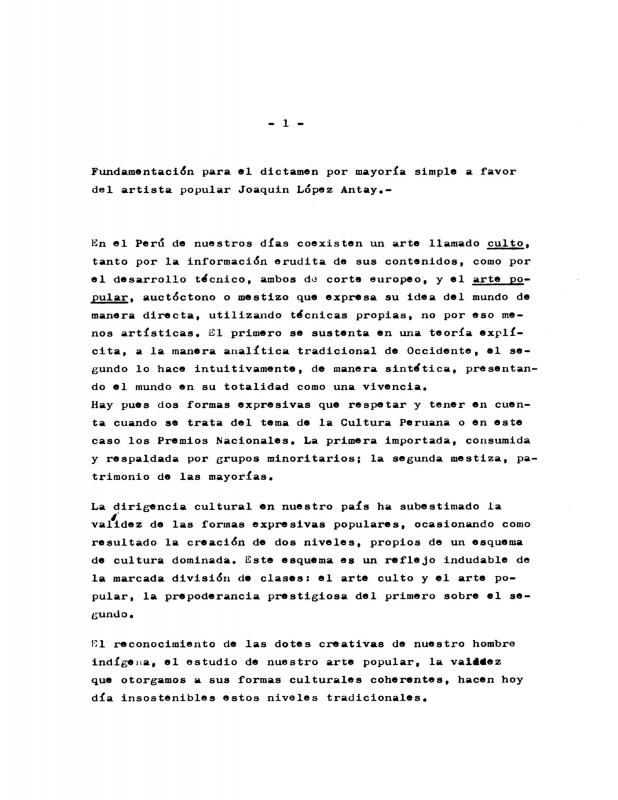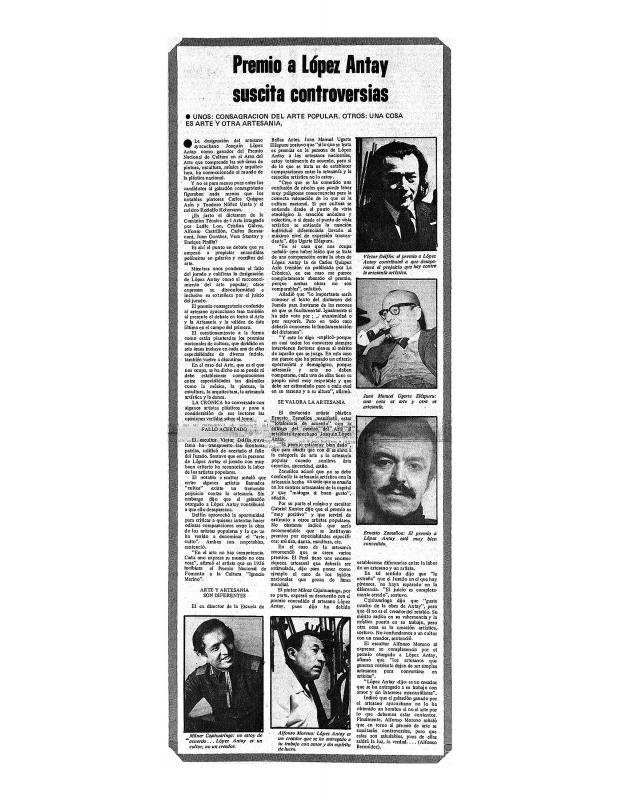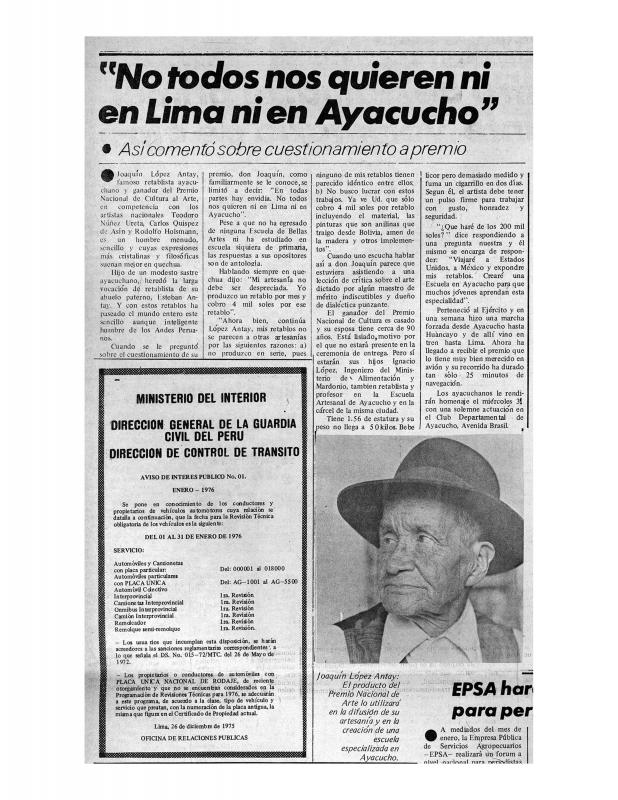This article makes a significant contribution to the national debate over the decision to award the 1975 National Art Prize to an artisan from the Andean region of Peru. This opinion piece about the recognition of “popular (traditional) art” was part of the debate. It is interesting to note the author’s cautious approach to the reappraisal of “popular art” from a Marxist perspective. The name “Félix Azofra” was a pseudonym used by Félix Álvarez Sanz (1945–2006), a Spanish writer from Madrid who lived in Lima, Peru from the 1960s to the 1990s. He was a teacher at the Universidad Nacional Mayor de San Marcos; he was the director of the Biblioteca de España at the same university, and worked as a researcher at the Museo de Arqueología. He also wrote articles for magazines and newspapers such as La Crónica, La República, El Comercio, La Prensa, Expreso, and Correo.
An announcement on December 26, 1975 confirmed that the National Culture Prizes (for the 1973–74 biennium) had been awarded by the Peruvian government through the Instituto Nacional de Cultura to honor the greatest contributions to the development of Peruvian culture. The jury’s decision in the art category (which had traditionally included painting, sculpture, music, and architecture) ignited one of the most heated debates in the history of Peruvian art. The ensuing controversy underscored simmering tensions and suspicions regarding the cultural policies of the revolutionary government of the armed forces led by General Juan Velasco Alvarado (1968–75). This administration claimed to be committed to a progressive agenda, a claim supported mainly by the Agrarian Reform of 1969 which was accompanied by the government’s enthusiastic attempt to glorify the image of the peasant population and lifestyle at the expense of other forms of cultural expression that were considered more “Western.” On this occasion the prize was awarded to Joaquín López Antay (1897–1981), who was chosen over well-known visual artists such as Carlos Quízpez Asín (1900–83) and Teodoro Núñez Ureta (1912–88) and the German-born academic musician Rodolfo Holzmann (1910–92).
[Regarding this conflict, see the following articles in the ICAA digital archive: by Alfonso Castrillón, Leslie Lee, and Carlos Bernasconi “Fundamentación para el dictamen por mayoría simple a favor del artista popular Joaquín López Antay” (doc. no. 1135896); by Alfonso Bermúdez “Premio a López Antay suscita controversias. Unos: consagración del arte popular. Otros: una cosa es arte y otra artesanía” (doc. no. 1135879); by Francisco Abril de Vivero, Luis Cossio Marino, and Alberto Dávila “Artistas plásticos cuestionan premio” (doc. no. 1135960); and (anonymous) “‘No todos nos quieren ni en Lima ni en Ayacucho’: así comentó sobre cuestionamiento a premio” (doc. no. 1135930)].




